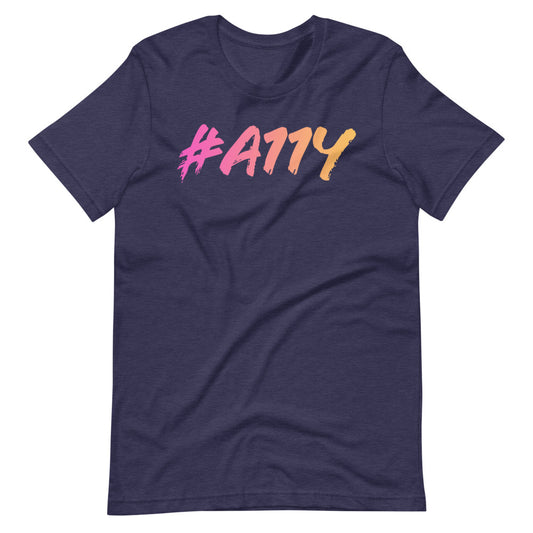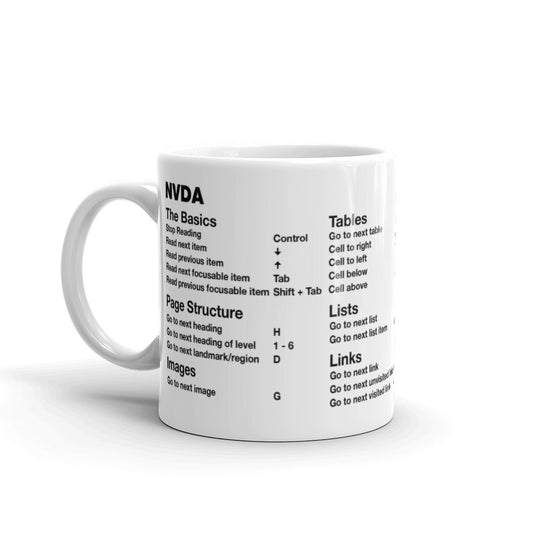Accessible by Default: Peppa Pig

Being a new dad to a 4 year old, you end up watching a lot of children's programming you've likely never heard of before. (Why would you?) I do pay some attention to what our daughter watches and consumes. I want to make sure it's nothing inappropriate and to share learning opportunities when they present themselves.
Each morning before I take her to school, we have breakfast in bed and watch a little TV. Here's how a typical morning begins:
- 👨🦲 "Sweetie, what would you like to watch this morning?"
- 👧 "Um, Peppa Pig!"
If you're unfamiliar, Peppa Pig is an English (as in 🇬🇧) cartoon. It follows the adventures of a cute little girl pig and her pig family. Adorably (or annoyingly, depending on your perspective) Peppa does a little pig snort before she speaks. Why is this bit of information important? It's not. Like, at all. I just think it's funny.
The show also features another character outside of Peppa's family and school chums. Arguably, this character goes beyond the 4th wall, too: The Narrator. Here's where this post gets interesting, I promise.
Sitting on the bed, half listening, half mindlessly scrolling through my Twitter feed, I hear The Narrator speak:
"Daddy Pig has some warm, soapy water to wash the car."
I glance at the television. Daddy Pig is indeed setting a pail of water down to wash the family car. Not thinking much of it, my head tilts back down into the glow of my device.
I hear The Narrator speak again:
"Daddy Pig is washing the roof."
"That's interesting," I remark to myself. "The narrator is describing the scene…" I listen to The Narrator now as he further describes the scene. The pigs are washing their dirty car and baby George wants to help.
"George wants to wash the windows, but he is too little."
"Ok, this is cool. The Narrator is describing actions and sets the scene before it happens." Then it hits me: The Narrator is providing audio descriptions.
A sample of the show
Here's a clip of the show as described above. Listen in for descriptive cueues from The Narrator.
Pretty awesome, right?
Why is this important?
Here's why this is great. The Narrator providing audio descriptions is worth noticing for a few reasons:
- Sighted children are able to make the connection with what they see on the screen. Kids will learn name association for objects, actions, and social situations much quicker.
- Audio descriptions provide information to children with low vision or who are blind. Descriptions allow further understanding to what's happening in the scene. In other words, more kids can enjoy the show!
As it turns out, the creators of the show have embedded, by default, an audio track which provides audio descriptions.
The 411 on audio descriptions
Descriptions are important to share what's happening in-between spoken dialog. Information shared in the description might include:
- A change in scenery
- A character performing an action
- Brief descriptions of silent emotion
When creating video for the web, it's a requirement to provide an audio description. (WCAG AA 1.2.5 Audio Description).
Unlike Peppa Pig, which embeds audio descriptions as part of each episode, it would be more realistic to have a second audio track be available. Not everyone would want or appreciate hearing audio descriptions all of the time. If your video player doesn't support multiple audio tracks, you may need to provide a separate video altogether. Make sure to link from one video to the other to make sure people are aware of the alternate version.
For example, compare the audio of Apple's Introducing Voice Control on Mac and iOS video with its audio descriptive cousin, Introducing Voice Control on Mac and iOS (with Audio Descriptions). Notice the extra bits of information described in-between people speaking. It may be helpful to think of audio descriptions as alt text for specific scenes of a video. Use enough words to paint the mental image yet not be overbearing with too much data.
Whether Peppa Pig's creators meant to make the show accessible by incorporating inclusive design is unknown. But hey, it's pretty awesome how it ended up being this way. I think this is great example which goes to show…
Creating accessible experiences from the beginning benefits everyone in the end.



